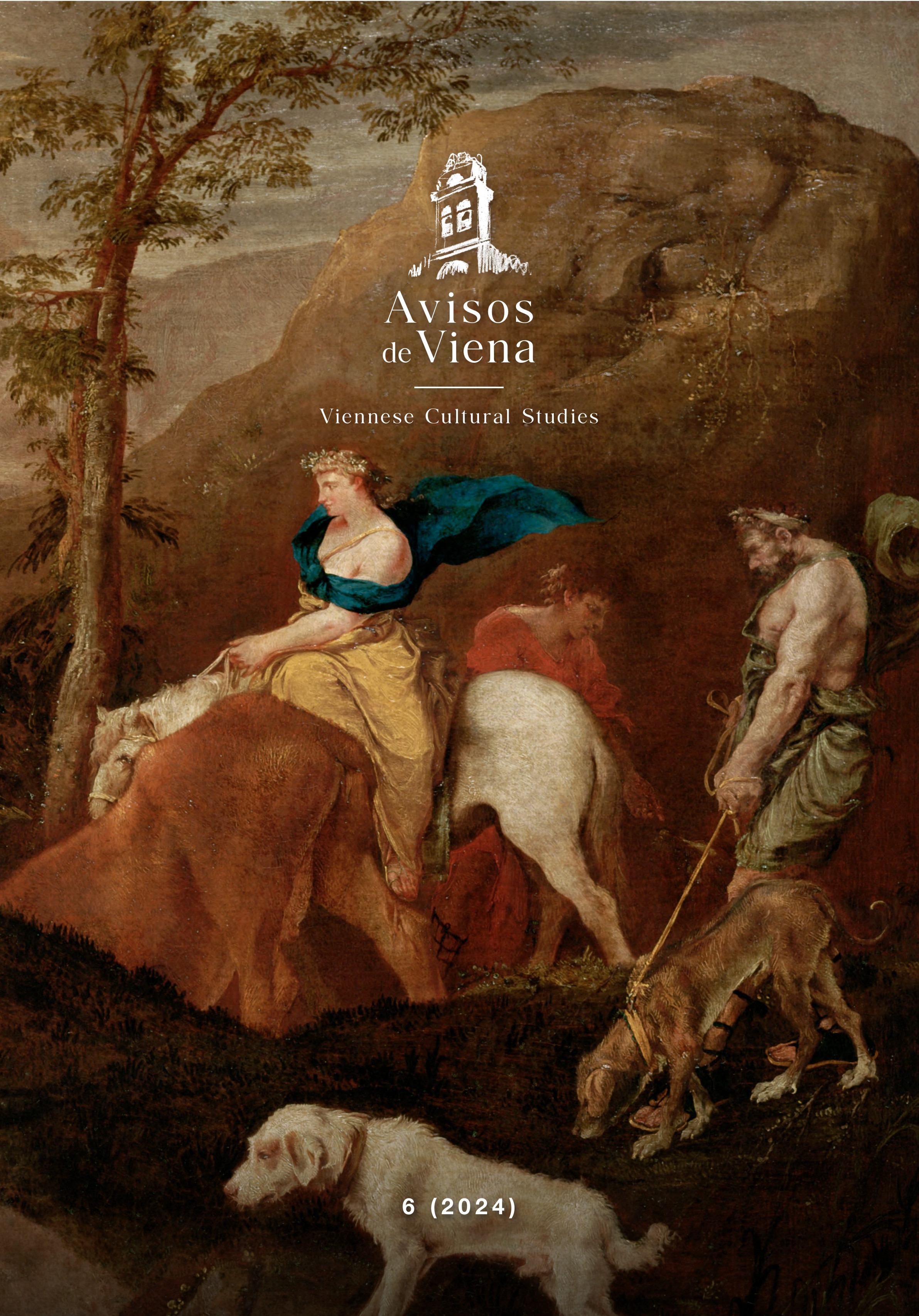Mueve la burra, mueve la princesa
Algunos sinónimos de abortar en textos literarios y documentos auriseculares
DOI:
https://doi.org/10.25365/adv.2024.6.8518Keywords:
Léxico obstétrico, aborto, malparto, muévedo, abortion, premature birth, ill-born, semantic evolution, societal attitudesAbstract
The text explores the semantic evolution and connotations of the terms abortar, malparir, and mover in Spanish. Initially used in medical contexts, aborto and malparto describe specific stages or outcomes of pregnancy. Over time, malparido acquired pejorative connotations, denoting a person of low moral character or social status. The progression from medical to figurative usage reflects societal attitudes toward childbirth, morality, and language. The analysis considers historical texts, dictionaries, and literary examples to trace these shifts in meaning. The study highlights how language reflects and shapes cultural perceptions, illustrating the complex interplay between semantics, social norms, and linguistic evolution.
References
Aichinger, W. (2023). Los bautizados de socorro de Pedro Bernardo (Ávila). Un momento de transición en el registro de la muerte neonatal. Memoria y civilización, 26(1), 231-253. https://doi.org/10.15581/001.26.010
Aichinger, W. (2022). Si está parida la gata. Partos animales en la vida cotidiana y en el pensamiento poético del Siglo de Oro. Avisos de Viena, 3, 13-17.
Aichinger, W. (2021). Enfants et rires, richesse de pauvres. Un ama de cría le canta las cuarenta al rey Felipe IV de España. Avisos de Viena, 1, 7-11.
Bumas, E. S. (2000). The cannibal butcher shop: Protestant uses of Las Casas’s Brevísima Relación in Europe and the American Colonies. Early American Literature, 35(2), 107-136.
Cabrera de Córdoba, L. (1857). Relaciones de las cosas sucedidas en la corte de España desde 1599 hasta 1614. Madrid: Martín Alegría.
Casas, B. de las. (1875). Historia de las Indias (Vol. 2). Madrid: Miguel Ginesta.
Correas, G. (1967). Vocabulario de refranes y frases proverbiales (L. Combet, Ed.). Bordeaux: Institut d’études ibériques et ibéro-américaines de l’Université de Bordeaux.
Covarrubias Horozco, S. de. (2020). Tesoro de la lengua castellana (I. Arellano & R. Zafra, Eds.). Madrid/Frankfurt: Iberoamericana/Vervuert.
Daza Chacón, D. (1609). Práctica y teórica de cirugía en romance y en latín. Valladolid: Ana Vélez.
Franciosini, L. (1707). Vocabulario italiano, espagnolo. Ginebra: Appresso gli Associati.
Gélis, J. (1984). L’arbre et le fruit: La naissance dans l’Occident moderne (XVIe-XIXe siècle). Paris: Fayard.
Gilman, S., & Ruggerio, M. J. (1961). Rodrigo de Reinosa and La Celestina. Romanische Forschungen, 73(3/4), 255-284.
Góngora, L. de. (1999). Epistolario completo (A. Carreira, Ed.). Zaragoza: Libros Pórtico.
Goytisolo, J. (2008). Don Julián. Madrid: Círculo de lectores.
Herreros Moya, G. J. (2012). De oscuros hidalgos a señores de vasallos. La construcción de la imagen de una casa nobiliaria cordobesa: los Corral, ss. XVI-XVIII. In A. Jiménez Estrella & J. J. Lozano Navarro (Eds.), El Estado Absoluto y la Monarquía (Vol. 1, pp. 385-397). Granada: Universidad de Granada.
Kremmel, N. (2018). Parir a lo castellano: Semántica histórica de la preñez y del parto en el Tesoro de la lengua castellana de Covarrubias. Memoria y Civilización, 21, 89-102. https://doi.org/10.15581/001.21.027
Lazarillo de Tormes (24th ed.). (2014). Madrid: Cátedra.
Martínez de Toledo, A. (1985). Arcipreste de Talavera o Corbacho (J. González Muela, Ed., 4th ed.). Madrid: Castalia.
Miranda Montecinos, A. (2014). ¿Qué es el aborto indirecto? La prohibición del aborto y el principio del doble efecto. Acta Bioethica, 20(2), 159-168. http://dx.doi.org/10.4067/S1726-569X2014000200003
Molina, T. de. (2011). El pretendiente al revés. In E. Galar Irurre (Ed.), Obras completas (Vol. 1, pp. 195-388). Frankfurt/Madrid: Iberoamericana-Vervuert.
Molina, T. de. (2005). Amor y celos hacen discretos. Alicante: Biblioteca Virtual Miguel de Cervantes.
Moral de Calatrava, P. (2016). El aborto en la literatura médica castellana del siglo XVI. DYNAMIS. Acta Hispanica ad Medinae Scientiarumque Historiam Illustrandam, 26, 36-68. https://hdl.handle.net/10481/77796
Nebrija, A. de. (1514). Dictionarium latino-hispanicum. Zaragoza: Jorge Coci.
Nebrija, A. de. (ca. 1495). Vocabulario español-latino. Salamanca: Juan de Porras.
Pérez Galdós, B. (2007). Fortunata y Jacinta (9th ed., F. Caudet, Ed.). Madrid: Cátedra.
Pinker, S. (2018). Enlightenment now: The case for reason, science, humanism, and progress. New York: Viking.
Puerto Moro, L. (Ed.). (2010). Obra conocida de Rodrigo de Reinosa. San Millán de la Cogolla: Cilengua.
Real Academia Española. (2014). Diccionario de la lengua española (23rd ed.). Madrid: Espasa.
Real Academia Española. (1990). Diccionario de autoridades (Facsimile ed.). Madrid: Gredos. (Original work published 1726–1739)
Reinosa, R. de. (1997). Las coplas de las comadres (A. López Vaqué, Ed.). Reinosa: Ayuntamiento de Reinosa.
Rico, F. (Ed.). (2014). Lazarillo de Tormes (24th ed.). Madrid: Cátedra.
Ruices de Fontecha, J. A. (1606). Diez previlegios para mugeres preñadas. Alcalá de Henares: Luis Martínez.
Sánchez, A. (1961). Aspectos de lo cómico en la poesía de Góngora. Revista de Filología Española, 44(1/2), 95-138. https://doi.org/10.3989/rfe.1961.v44.i1/2.991
Sanz-Lázaro, F. (2023). Hay una higa para quien da consejo sin que se lo pidan. Avisos de Viena, 5, 55-63.
Schmidt, E. A. (1795). Diccionario español y alemán. Leipzig: Swickertschen.
Shakespeare, W. (2017). Richard III (P. Holland, Ed.). New York: Penguin.
Shakespeare, W. (1996). Hamlet (T. J. B. Spencer, Ed.). London: Penguin.
Stevens, J. (1726). A new dictionary Spanish and English and English and Spanish. London: J. Darby et al.
Tabernero, C., & Usunáriz, J. M. (2019). Diccionario de injurias de los siglos XVI y XVII. Kassel: Edition Reichenberger.
Tabernero Sala, C. (2020). Las denominaciones de parir y malparir en la historia del léxico. Revista Historia Autónoma, 16, 83-100. https://doi.org/10.15366/rha2020.16.005
Usunáriz, J. M. (2017). Un análisis de los insultos en el Quijote desde la historia social del lenguaje. Anales Cervantinos, 49, 59-73. https://doi.org/10.3989/anacervantinos.2017.003
Villalon, A. (2014). The 1562 head injury of Don Carlos: A conflict of medicine and religion in sixteenth-century Spain. Mediterranean Studies, 22(2), 95-134. https://doi.org/10.5325/mediterraneanstu.22.2.0095
Downloads
Published
How to Cite
Issue
Section
License
Copyright (c) 2024 Fernando Sanz-Lázaro

This work is licensed under a Creative Commons Attribution 4.0 International License.
© Open Access, CC BY 4.0








